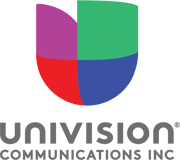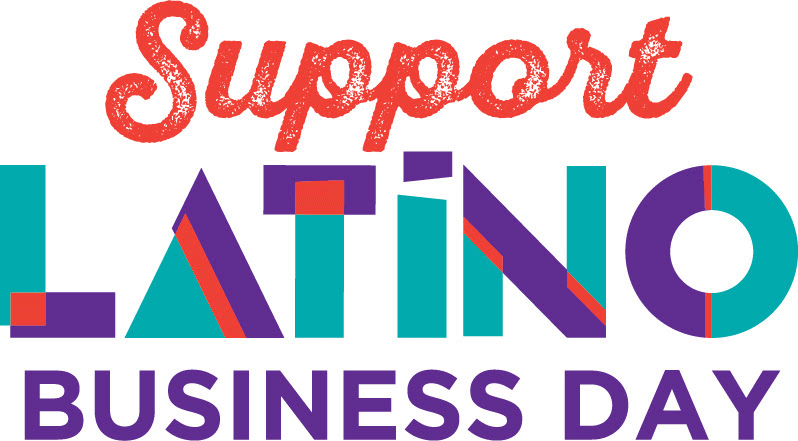PODCASTING TODAY – Insights For Advertisers [REPORT]
 The rising ad dollars also speaks to the notably broad audience that now listens to podcasts. That’s a key shift, particularly as advertisers look to podcasting for new opportunities.
The rising ad dollars also speaks to the notably broad audience that now listens to podcasts. That’s a key shift, particularly as advertisers look to podcasting for new opportunities.
 The rising ad dollars also speaks to the notably broad audience that now listens to podcasts. That’s a key shift, particularly as advertisers look to podcasting for new opportunities.
The rising ad dollars also speaks to the notably broad audience that now listens to podcasts. That’s a key shift, particularly as advertisers look to podcasting for new opportunities.
 Forty-four percent of U.S. Latinos have never listened to a podcast and 20% have not listened to a podcast in the last month, but a new study finds that 67% of U.S. Latinos who don’t listen to podcasts already listen to spoken word audio.
Forty-four percent of U.S. Latinos have never listened to a podcast and 20% have not listened to a podcast in the last month, but a new study finds that 67% of U.S. Latinos who don’t listen to podcasts already listen to spoken word audio.

Over the past few years—and especially in 2020—marketers have had to be increasingly flexible and agile to meet ever-changing consumer demands. In this year’s Nielsen 2021 Annual Marketing Report, we found that marketers across several industries, including technology, travel and tourism, retail and financial services, had to adjust the mix of their marketing spend by as much as 59% in 2020 to adapt to the pandemic. As consumer preferences changed, it created a domino effect that affected business priorities and budgets. To keep pace, marketers had to be creative to activate campaigns with less.
![]() The current study serves as an update to previous findings by evaluating top-grossing movies from 2019. The investigation assessed leading and co-leading Hispanic/Latino actors and all Hispanic/Latino speaking characters across 1,300 top-grossing films from 2007 to 2019, as well as the presence of Hispanic/Latinos working behind the camera as directors, producers, and casting directors.
The current study serves as an update to previous findings by evaluating top-grossing movies from 2019. The investigation assessed leading and co-leading Hispanic/Latino actors and all Hispanic/Latino speaking characters across 1,300 top-grossing films from 2007 to 2019, as well as the presence of Hispanic/Latinos working behind the camera as directors, producers, and casting directors.
 In our “Industry Spotlight Series”, we are highlighting Greg Knipp – Chief Executive Officer at Dieste and Dieste Health.
In our “Industry Spotlight Series”, we are highlighting Greg Knipp – Chief Executive Officer at Dieste and Dieste Health.
 According to several local sources in Miami, FL, Univision Communications has big plans on moving their Head Quarters to Miami.
According to several local sources in Miami, FL, Univision Communications has big plans on moving their Head Quarters to Miami.
 Support Latino Business (SLB), a nonprofit dedicated to championing Latino/x small businesses, hosts its third annual Support Latino Business Day, September 14, 2021. Purposely kicking off Hispanic Heritage Month (September 15-October 15) one day early, Support Latino Business Day works to continue changing the narrative for Latinos in the U.S., highlighting the vital and often unsung contributors of our nation’s economy.
Support Latino Business (SLB), a nonprofit dedicated to championing Latino/x small businesses, hosts its third annual Support Latino Business Day, September 14, 2021. Purposely kicking off Hispanic Heritage Month (September 15-October 15) one day early, Support Latino Business Day works to continue changing the narrative for Latinos in the U.S., highlighting the vital and often unsung contributors of our nation’s economy.
 The chief marketing officer (CMO) takes the elevator from the ground floor. It’s usually empty—but not today. This morning, he bumps into the new chair of the supervisory board. She must have gotten on the elevator in the underground parking lot. The trip up to the executive floor takes only about a minute. The CMO braces himself and asks, “What’s the priority for next year—brand strength or margin?” The supervisory board chair responds, “Can’t we have both?”
The chief marketing officer (CMO) takes the elevator from the ground floor. It’s usually empty—but not today. This morning, he bumps into the new chair of the supervisory board. She must have gotten on the elevator in the underground parking lot. The trip up to the executive floor takes only about a minute. The CMO braces himself and asks, “What’s the priority for next year—brand strength or margin?” The supervisory board chair responds, “Can’t we have both?”
 Support diverse communities. Increase representation of minorities. Invest in diverse-owned media. This is likely the thought process of advertisers and agencies that have made public commitments during the social justice movement of the past year. As the advertising industry looks to deliver on those commitments, that brings opportunity for the long tail of diverse-owned media that cater to communities of different ethnicities, sexual orientation, various diaspora and all intersectionalities in between. With the market for diverse-owned ad time hotter than ever, how can diverse media owners increase their visibility with advertisers and agencies?
Support diverse communities. Increase representation of minorities. Invest in diverse-owned media. This is likely the thought process of advertisers and agencies that have made public commitments during the social justice movement of the past year. As the advertising industry looks to deliver on those commitments, that brings opportunity for the long tail of diverse-owned media that cater to communities of different ethnicities, sexual orientation, various diaspora and all intersectionalities in between. With the market for diverse-owned ad time hotter than ever, how can diverse media owners increase their visibility with advertisers and agencies?
 Imagine you’re a CMO from a giant U.S. Corporation, and on August 12th, you received a message from your boss. She just got two questions from one of the company’s board director: Have you seen the latest Census data? And most importantly, are we ready to compete in this new diverse marketplace? By Isaac Mizrahi – Co-President & COO of ALMA
Imagine you’re a CMO from a giant U.S. Corporation, and on August 12th, you received a message from your boss. She just got two questions from one of the company’s board director: Have you seen the latest Census data? And most importantly, are we ready to compete in this new diverse marketplace? By Isaac Mizrahi – Co-President & COO of ALMA
 This year has been marked by unprecedented change in society, the economy, and the health of all Americans. In times like these marketing planning based on a high level of certainty has advantages. Here are 6 U.S. Hispanic market insights that are certain to maximize your 2022 marketing plans. By Roberto Orci, EVP Strategic Growth at Captura Group
This year has been marked by unprecedented change in society, the economy, and the health of all Americans. In times like these marketing planning based on a high level of certainty has advantages. Here are 6 U.S. Hispanic market insights that are certain to maximize your 2022 marketing plans. By Roberto Orci, EVP Strategic Growth at Captura Group
 Roku published the results its annual survey that provides insights into consumer TV viewing behaviors and preferences and how the pandemic accelerated the ongoing shift to TV streaming.
Roku published the results its annual survey that provides insights into consumer TV viewing behaviors and preferences and how the pandemic accelerated the ongoing shift to TV streaming.
 Local Ad Agencies face stiff competition these days. Digital agencies are sprouting everywhere. On top of that, media companies have also meandered into the marketing services field, creating their own agencies.
Local Ad Agencies face stiff competition these days. Digital agencies are sprouting everywhere. On top of that, media companies have also meandered into the marketing services field, creating their own agencies.
 In marketing, Double Jeopardy refers to the relationship between brand size and repeat purchase, whereby penetration and repeat purchase rates are correlated. The bigger the brand is, the more repeat purchasers it will have, which puts small brands at a double disadvantage. But just knowing this fact does not tell you why the pattern exists or why it is so prevalent. By Nigel Hollis
In marketing, Double Jeopardy refers to the relationship between brand size and repeat purchase, whereby penetration and repeat purchase rates are correlated. The bigger the brand is, the more repeat purchasers it will have, which puts small brands at a double disadvantage. But just knowing this fact does not tell you why the pattern exists or why it is so prevalent. By Nigel Hollis
 Explore Americans’ perceptions of present and future economic opportunity with the Economic Opportunity Index1. The index captures respondents’ sentiments about their own prospects and the country’s as a whole on a scale from most pessimistic (-5) to most optimistic (+5) and represents the average score by demographic group.
Explore Americans’ perceptions of present and future economic opportunity with the Economic Opportunity Index1. The index captures respondents’ sentiments about their own prospects and the country’s as a whole on a scale from most pessimistic (-5) to most optimistic (+5) and represents the average score by demographic group.
 2020 was always expected to be an inflection point.
2020 was always expected to be an inflection point.
 CMOs and Marketing Leaders must reprioritize channels, programs and resources to remain competitive and efficient.
CMOs and Marketing Leaders must reprioritize channels, programs and resources to remain competitive and efficient.
 Is data overload actively inhibiting insight and making it harder for comms professionals to find the story in the noise? Our recent study, ‘Five crucial steps to a smarter communications strategy,’ seeks to answer this and other questions… and unveils the vital strategies that empower brands to manage their reputations successfully.
Is data overload actively inhibiting insight and making it harder for comms professionals to find the story in the noise? Our recent study, ‘Five crucial steps to a smarter communications strategy,’ seeks to answer this and other questions… and unveils the vital strategies that empower brands to manage their reputations successfully.
 After the severe decline in media investment in 2020, the ad industry has been encouraged by a rapid recovery in 2021, with advertising being used as one of the levers to fuel recovery. As consumer behaviour continues to evolve, and we emerge into a new media landscape, brands need to understand which consumer and marketer attitudes have changed, and which have stayed the same. Which media brands have retained their appeal, and which have grown stronger?
After the severe decline in media investment in 2020, the ad industry has been encouraged by a rapid recovery in 2021, with advertising being used as one of the levers to fuel recovery. As consumer behaviour continues to evolve, and we emerge into a new media landscape, brands need to understand which consumer and marketer attitudes have changed, and which have stayed the same. Which media brands have retained their appeal, and which have grown stronger?
 Tras la posposición de la premiación correspondiente al año 2020, la Asociación Publicitaria de Puerto Rico otorgó los galardones a la creatividad en una ceremonia conjunta que cubrió dos años de trabajo creativo, que corresponden a sus ediciones 38 y 39. Durante el evento, la industria publicitaria reconoció los mejores trabajos, entre los que destacaron piezas que hicieron latente la importancia que tienen la creatividad y efectividad a la hora de proveer a los clientes y marcas soluciones para enfrentar los retos de un mercado cambiante y lleno de transformaciones.
Tras la posposición de la premiación correspondiente al año 2020, la Asociación Publicitaria de Puerto Rico otorgó los galardones a la creatividad en una ceremonia conjunta que cubrió dos años de trabajo creativo, que corresponden a sus ediciones 38 y 39. Durante el evento, la industria publicitaria reconoció los mejores trabajos, entre los que destacaron piezas que hicieron latente la importancia que tienen la creatividad y efectividad a la hora de proveer a los clientes y marcas soluciones para enfrentar los retos de un mercado cambiante y lleno de transformaciones.